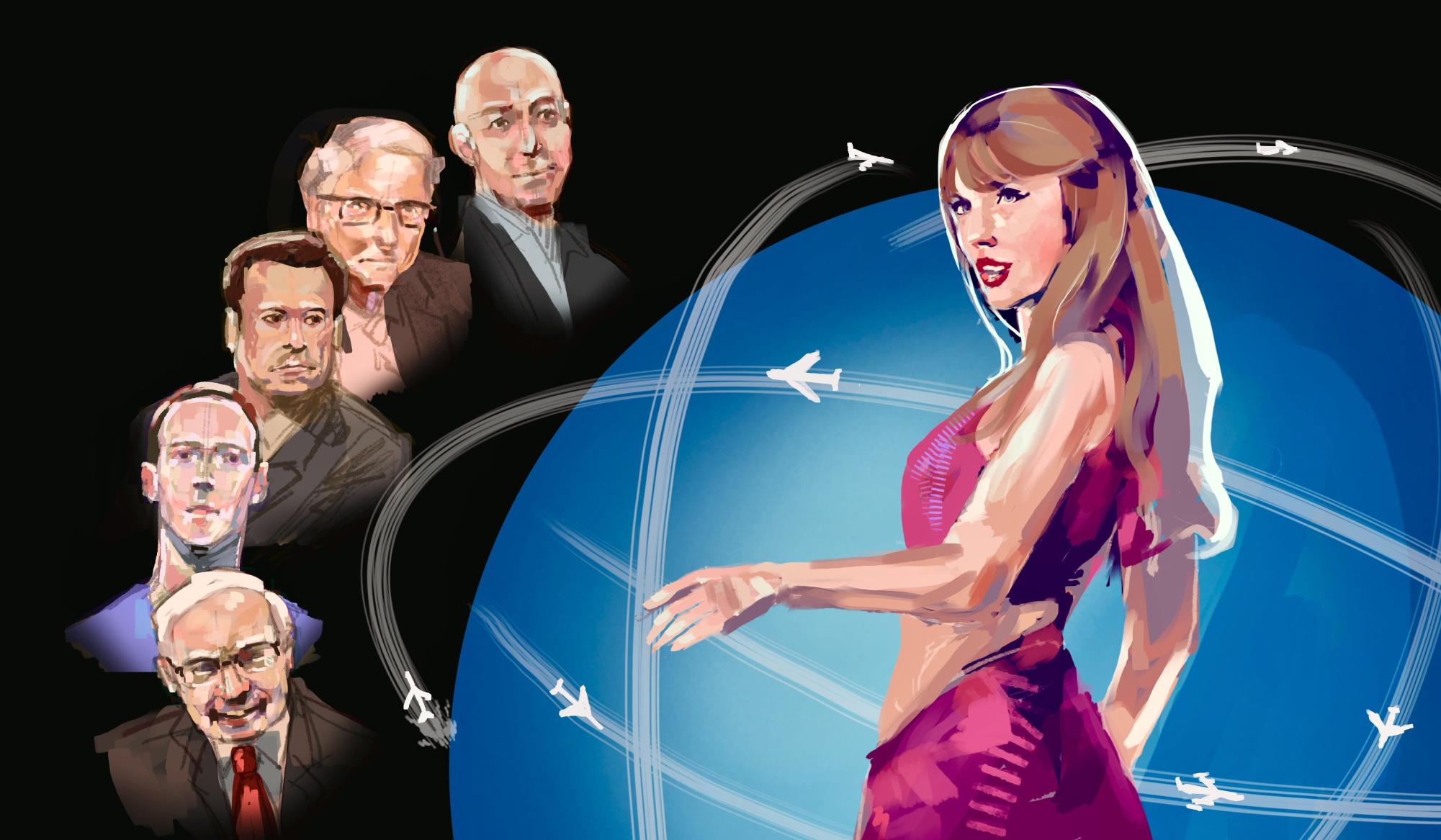Since the end of the Second World War, the top 1% has controlled the largest share of society’s wealth. This is largely due to various anti-union and anti-tax policies created over time, and progressive movements like “Occupy Wall Street” and Bernie Sanders’ presidential campaigns are indicative of larger societal dissatisfaction with the distribution of wealth.
However, there is a continual failure to implement substantive policy to mitigate income inequality, resulting in a system with disproportionate influence from tycoons like Elon Musk, who has played a contemporary role in political discourse following his purchase of the social media platform X, formerly known as Twitter. This outsized influence extends to all billionaires, including celebrities, and their wealth-hoarding behaviors. Although “charitable” acts may have some of the general populace convinced of the morality of billionaires, what they fail to realize is that billionaires are inherently exploitative.
For example, in 2022, the founder of Patagonia Yvon Chouinard committed the entirety of his $3 billion dollar fortune to a trust dedicated to fighting climate change following his death. Though this donation may mitigate some of the injustice created by Chouinard’s company, it can never truly reimburse the resulting societal damage in totality. In 2021, Patagonia was accused of using the forced labor of Muslim Uighurs in the Xinjiang region of China. For the last decade, the People’s Republic has been accused of committing cultural genocide against the Muslim Uighurs through a series of extreme and large-scale human rights violations, including being forced to work for private companies in the West. Beyond just the Uighurs, unfair wages for Patagonia’s lowest tier of Sri Lankan workers built Chouinard’s ability to donate his wealth in the first place.
In the realm of celebrities, internationally acclaimed pop star and billionaire Taylor Swift stands as another primary example. Swift has recently landed in hot water after it was reported that Swift is a notorious user of air travel, making her one of the top carbon emitters in 2022. Throughout the year, she emitted 8,300 tons of carbon dioxide from her private plane use alone. To put this in perspective, this is about 1,100 times the emissions from an average person, and if the emissions were converted into CO2 fire extinguishers, it would be enough to fill four million of them.
As this information became public knowledge, the billionaire responded to this criticism in two ways: purchasing carbon offsets and threatening to sue 21-year-old college student Jack Sweeney, who published this incriminating information using publicly available data. Swift’s legal response is indicative of how necessary it is for billionaires to use their existing capital and reputation to build and maintain their wealth. Furthermore, Swift’s attempt to skirt around criticism by purchasing carbon offsets is a form of exploitation. Although carbon offsets sound like a viable solution for reducing carbon emissions, they are a cheap method used by corporations to appeal to environmentally-conscious consumers. Through the purchase of forested land or renewable energy farms, studies have found that the offsets fall far short of the amount of carbon that these projects claim to reduce, and some projects even result in net negatives to the environment. The half-hearted effort by Swift to offset her carbon footprint lacks transparency and contributes to a broken, unregulated system utilized by profit-driven institutions.
It seems that as billionaires accumulate wealth, their motivations converge with that of profit-seeking corporations in order to maintain the wealth they have accumulated. In the process, the negative impact of their decisions becomes increasingly unrealized as they become ignorant of their hubris. In Swift’s case, this occurred in the summer of 2023 when unionized hotel workers were striking in Los Angeles. Hotel owners in L.A. made hundreds of millions during Swift’s Era Tour, likely contributing to the employer’s profits and prolonging the ongoing strike. Although this was not a malicious decision by Swift, the indirect consequences of her actions speak to billionaires’ contribution to income inequality.
In summary, Swift’s private plane scandal symbolizes her exploitation of the environment and manipulation of the public’s perception of her. Since the publication of Taylor’s private plane threatened her ability to generate income, her only option was to stifle free speech. While this does not necessarily mean that Swift is an immoral person, her actions, like Chouinard’s, will never make up for the injustices she has caused.









